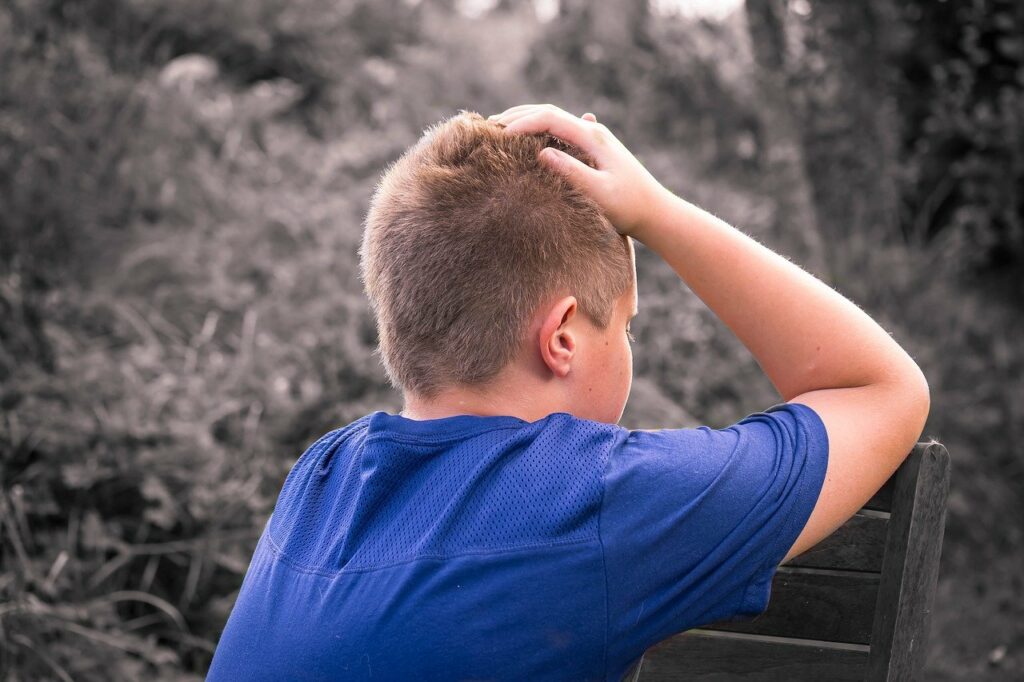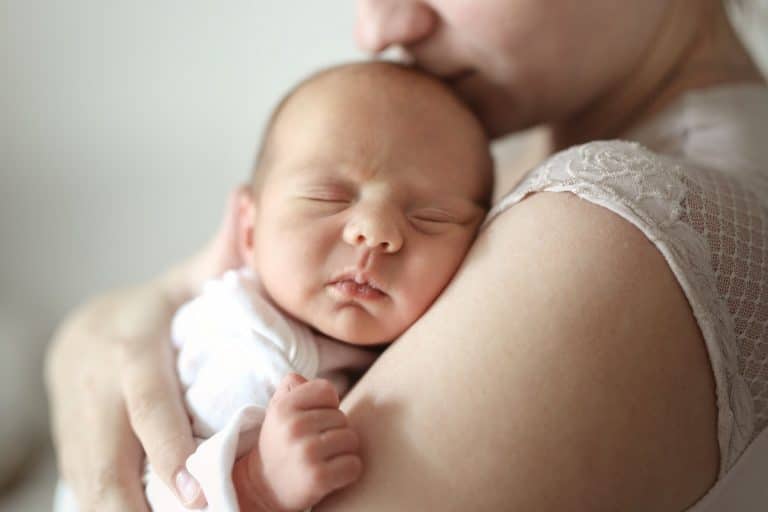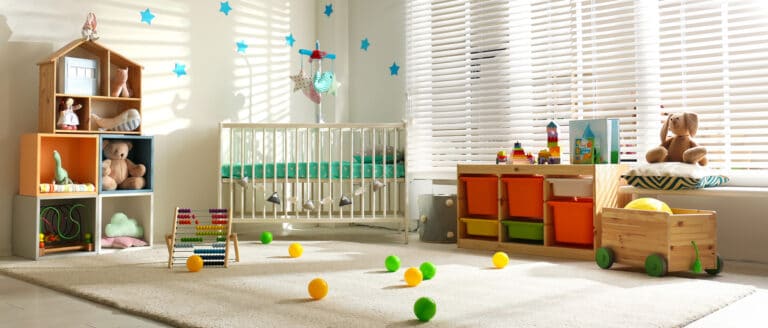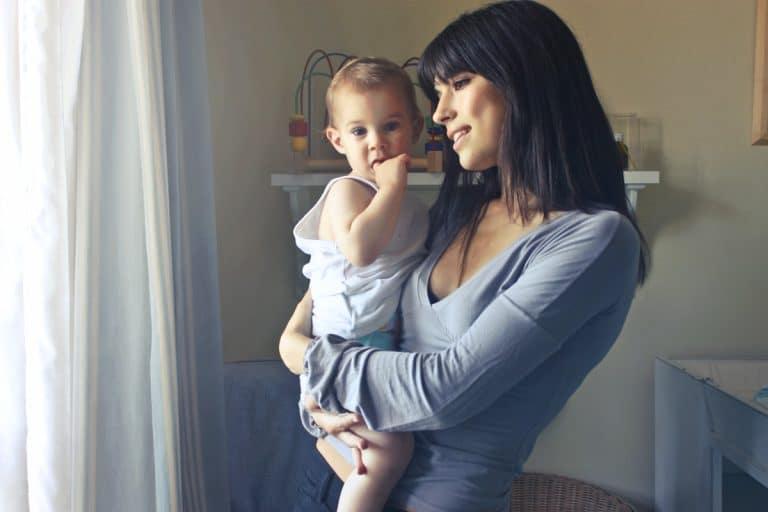If you have a child who is going to preschool, it can be hard to know why child crying when dropped off at school? And what to do when they start crying? As a parent, you might be worried about how your child will behave around other children. You may think that your kid cries at school drop off when you left them and run back home as soon as they see them.
But this is a common scenario for children around the age of three and four years old. The first thing you need to understand about pre-schoolers is that they develop separation anxiety. And may cry when dropped off at school. There are several things that you can try in order to stop them from crying at school. This blog post will discuss some ways that you can help your child not cry at preschool.
In This Article
What should do when your child cries at preschool?
When children go to preschool for the first time, it can be a stressful experience for parents. There will be many new experiences and the child will likely not know what to expect. For some kids, this experience can lead to tears or upset feelings which may worry you or other family members. Similarly, for toddlers at daycare drop off crying time or they start to feel sad for their parents.
It’s understandable for a parent to be nervous about their child’s first school experience. Many parents worry that the child will feel left out or won’t be socializing nicely with other children. There are several approaches you can take to reduce your uneasiness and prepare your child for this new experience.

The first thing to do is to allow your child to be part of the decision-making process. Ask them if they want to go and by letting your child choose. And you can help ease child’s separation anxiety somewhat. Try not to force your child into school as this could cause frustration and stress which mean tears. If the daily routine at preschool seems too much for your child, you could consider having them attend part of the day. If you do let them try it on their own, be sure to stay close by just in case they need you.
Another way to help your child is to prepare yourself with some strategies about how to handle things. If they begin crying or start to feel sad, you need to help them feel understood and safe. This entails recognizing what they’re feeling and then showing them that things are okay. And remember that no matter how much you want your child to smile or grin you can’t force it. And if your child is afraid of being away from you. Then try to give a comforting toy or a photo of your family together at school drop offs.
Why child cries when dropped off at preschool?
Children cry when dropped off at preschool for many different reasons. Some kids are sad about leaving a parent. While other kids may be frustrated because they were not able to communicate their discomfort before being left. Many young children have a hard time transitioning from one place to another. And require some extra help in learning how to regulate their emotions and behavior without their parents.
Some kids may not be sad about leaving a parent, but rather angry about having to leave their friends which can lead to kids crying. The important thing to remember is that all children are different when it comes to handling separation anxiety. It’s adaptive for child crying at school drop-off where they feel uncomfortable. Because in the wild this may mean that a parent comes running back or changes their current behavior.
If you don’t think your child will stop crying then take them with you wherever you are going. There may be a time when your child will need to stay at preschool. While you do errands or run an errand with another parent. Naturally, this would cause some amount of crying and frustration on the part of your child. Because they won’t want to be separated from you by other adults who will pick them up later.
It is important to move slowly though, as a parent. If you take your child out of preschool after 1 day, chances are they will feel abandoned and drop back down into a state of separation anxiety. The best thing to do is make sure that you communicate with the preschool teacher of your child’s about how long it takes for your child to feel comfortable at school. This will allow everyone to work together so your child doesn’t experience overwhelming amounts of stress during the first few days.
How to stop child crying at school drop off?
During this trying time, help your child feel confident while having fun. As well, baby cries when dropped off at daycare is completely normal. At this age, kids have separation anxiety issues for the first few weeks of their school day. For your child’s emotions to settle down, a simple technique is to give them a thumb drive. Though there are many things you can do to stop your 3 or 4 year old cries at preschool drop offs.
1) Create good bye rituals:
If you have to leave your crying child at preschool drop offs, it is important to create a goodbye ritual. How to get child to stop crying at school? First, let the excitement build-up, so that no one wants to head for the front door. You can give them a toy with their hands or give them a wave bye-bye. This will make their transition smoother and help them not to cry. When your child’s school started, it increases the family stress that how would their kids react. And goodbye rituals technique should help you to cop up with your child’s separation anxiety.
2) Distractions activities:
Another way to stop 3 year old crying at preschool, is to distract them on the way there. Tell them that you are bringing them on an adventure. Which will likely get their little minds excited about what they are going to do at school. Speak with them about what they will do today at the new school. And you can also discuss with your child’s teacher about your kid crying issues. This can keep them excited and eager for the day ahead.
3) Don’t sneak away:
Don’t sneak away while your baby looks the other way. Instead, try to drop them off at school during this time. The presence of adults can help lower their stress level about attending preschool. Let them recognize that you are around if they need you. If they can’t see you, make them aware of your presence. At this age, kids need to know that their parents are still around. Even if they cannot keep an eye on them every second during the day. This will also help your child understand that while you are at work, you’ll be back later for lunchtime and pick up them.
4) Praise them:
After every good thing, give your child praise so they know what is expected of them. With the use of positive reinforcement, kids are more likely to follow directions and know what to do right. By praising them after every good thing, children will be confident that they can do what’s expected of them. This helps with their separation anxiety. And also makes the drop off more fun for them than scary.
5) Encourage separation:
Between 3 and 4 years old, kids begin to understand and show independence. To help speed up the process, give your child opportunities to do things on their own so they can become more independent. You’ll find that your child will be more independent as time goes by. Again, these simple techniques can help your preschooler to stop crying at new school drop off. By encouraging separation, kids will be confident that they can complete tasks on their own without your help.
6) Nudge them that you came back:
When you push your child to a new school, it’s a good idea to come back before they are picked up. This will help them understand that the day isn’t over yet and you will be back soon. In the separation process of toddlers, you can bring along a little toy or stuffed animal to remind them of home. Let them know that you will come back and not stay away forever. Though dropping your child off at preschool is never easy, make the process fun and full of laughter.
Is it normal to cry when drop off at daycare?
Yes crying at drop-off is perfectly normal for kids to be sensitive and scared or anxious about entering a new environment. This often happens right around when a child reaches the peak of separation anxiety. It can be difficult for parents to drop off their children at school or daycare. Because they fear that their kid will have a meltdown. Especially when parents see other toddlers sobbing in frustration and despair as being separated from their parents.
The good news is that a vast majority of kids get used to their surroundings and make a few friends at daycare. The worst is over after a few weeks or months, depending on each child’s personality and a daycare setting or policies. To soothe your preschooler, give them some time the day before they start attending a new class or program. Try explaining where you both are going and tell them about the people they are going to meet.
This is also the same time to make sure they have their favorite things if that makes them feel safe and secure. If you are still concerned about your child’s reaction after explaining the scenario. You might want to take them on a trial day. This will give them an idea of what to expect and if they like it or not. Most kids cry at first but then adjust quickly after getting used to their surroundings.
In addition, make sure to regularly talk about their day when you pick them up. This will help your child with separation anxiety and not fear going back to daycare or preschool. As a parent, keep in mind that it’s common for kids to cry when they leave mommy and daddy. So do expect some tears on the first few days. When it comes to how long the crying should last it depends on the age of your child.

How long does preschool separation anxiety last?
Separation anxiety is a common problem that many parents have to deal with while taking their children to preschool. This usually starts occurring when the child turns 2 years old and continues through age 5. And it can last up until age 7 in some cases.
Preschool separation anxiety is when a child has extreme fears related to separating from their parents. They may cry, scream, throw tantrums, and refuse to leave their parent’s side to deal with this fear. This happens in various situations such as a doctor’s office and school. The sooner parents try to help the child out of this behavioral phase, the less damage can occur.
The most effective way to deal with preschools separation anxiety is by ignoring it completely. Don’t give any attention to the child’s behavior at all. After a few times of their upset not being acknowledged, they should stop crying or throwing tantrums. It may take several attempts, but it should work overtime. The reason why ignoring the child works is that their behavior gives them attention and this makes them feel better. If parents don’t give the child any attention the same results cannot be reached.
In most cases, this doesn’t pose any kind of problem for the child or the parents. It can cause a lot of stress for the parent and the child if not dealt with correctly. This is something that will happen while going through school. So it’s important to know how to work on it before sending your child drop offs to school.
Tips parents should know.
There are some parenting tips on how to settle a crying child in school. And these following tips will make drop offs a breeze while making the process less stressful for parents.
- Don’t pressure your child to do things they are not comfortable with. It’s okay for some children to be shy. So let them explore the new environment at their own pace. Forcing them will only lead to more anxiety and frustration.
- Give some time, the first day is always hard for a child as they miss their mother’s breast milk and feel cold in new surroundings.
- Make drop-off at school easy with sensory toys. Give your child something to look forward to when arriving at school and it makes them to stopped crying and being annoying.
- Always be present around your baby so that you can comfort him or her whenever he or she cries out loud when their school starts.
- Be sure that the child does not have any classes in the morning. If the child is exhausted, he or she will be cranky and tired, making it hard to settle him/her down for school activities.
- As a parent make sure that your child take enough sleep during their nap time.
- Make sure when your kids arrive at their school, they should be calm and happy.
- Don’t be over-protective and stay positive. If your child is crying, it’s more likely because they want to do something and you are not letting them.
- Teach kids about making good choices when it comes to their behavior and communicating with others.
- Don’t hesitate to ask school staff if you have any queries about your child.
- Give them blow kisses and a extra hugs while leaving for school. This act will lessen the blow of separation your child feels when reminded that Mom or Daddy is not with them.
- Finally, you need to be patient with your children as they go through this difficult period of their lives and always ask the teacher for help.
- Avoid all the difference that your child may find stressful. Different teachers and classmates, unknown environments, bigger kids all can stress out a toddler.
- Make sure the school has an open-door policy for parents and students.
- Be aware of what triggers your child’s sadness or anxiety.
- Offer support to the kid on how he or she should deal with the issue of crying in class. It can be by offering words of encouragement and praise when they can cope up with it.
- Don’t avoid the problem because it will only make things worse. The best way to bring out the real personality of your child is to let them express whatever emotion they feel inside.
- Don’t try to bribe your child to stops crying with lollies or toys. If they are hungry, offer them food and drink before sending them to school.
How do preschools deal with anxiety drop offs?
How long does it take for a child to get used to preschool?
How do daycare deal with toddler crying?
How can you make school drop off easier?
Is Crying normal for a 4 year old?
Conclusion
In conclusion, it is important to understand that children learn best when they are happy and comfortable. They need a good balance of playtime with the right amount of structure for them to be successful at preschool. The best way to stop a child from crying at preschool is by providing them with the opportunity to explore and learn. This will help keep your little one feeling secure, as well as provide an outlet for their energy.
If your child tends to be more temperamental, offer them simple encouragement when they seem frustrated or tired. This will help teach them the right way to handle similar situations in the future. If you need advice on a certain situation or problem, feel free to contact us through a comment below for further guidance and suggestions.











